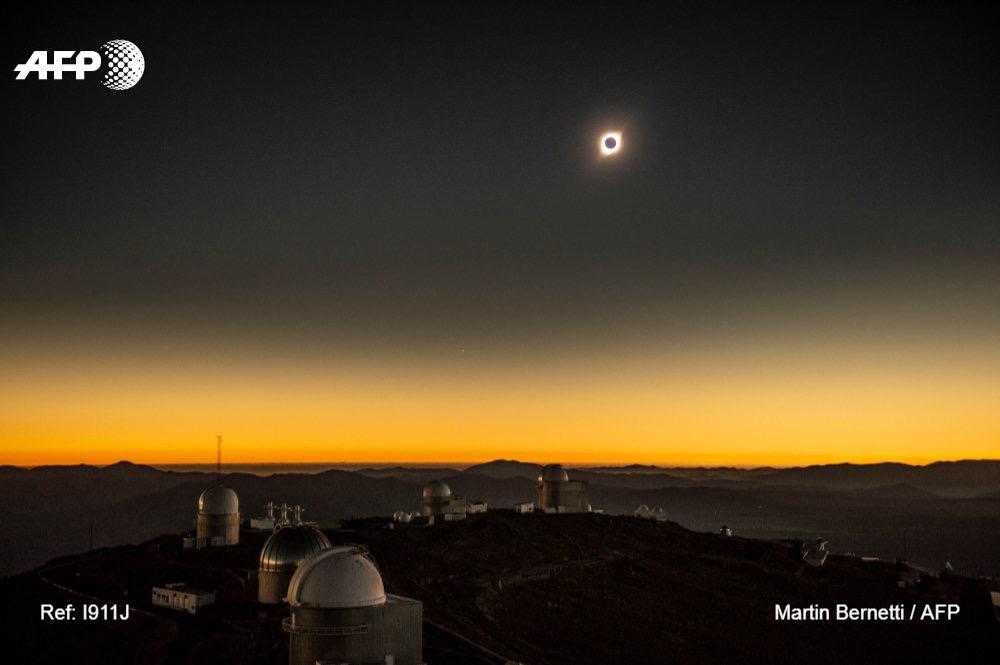Science News Roundup: Solar eclipse plunges Chile into darkness; NASA tests abort system on astronaut capsule

Following is a summary of current science news briefs.
Biblical bad guys the ancient Philistines came from Europe, DNA shows
The ancient Philistines, the Biblical villains whose origins have puzzled scholars for decades, came to the Middle East from southern Europe more than 3,000 years ago, new DNA testing has shown. The genetic findings came from skeletons unearthed by archaeologists in Israel in 2016, including the bones of infants buried beneath Philistine houses, archaeologists said in a paper published on Wednesday.
Hungarian parliament passes bill tightening state grip over scientists
Hungarian lawmakers passed legislation on Tuesday to tighten state control of research bodies run by the Hungarian Academy of Sciences (MTA), overriding protests against the latest step to expand the government's role in public life. Since taking power in 2010, right-wing nationalist Prime Minister Viktor Orban has brought about a politicization of the courts, media and universities, putting his government at odds with the European Union over rule of law standards.
Solar eclipse plunges Chile into darkness
Hundreds of thousands of tourists scattered across the north Chilean desert on Tuesday to experience a rare, and irresistible combination for astronomy buffs: a total eclipse of the sun viewed from beneath the world's clearest skies. A solar eclipse occurs when the moon passes between the Earth and the sun, plunging the planet into darkness. It happens only rarely in any given spot across the globe.
NASA tests abort system on astronaut capsule built for moon missions
An unmanned full-scale NASA crew capsule blasted off from a Florida launchpad on Tuesday in a successful test of the spacecraft's abort thrusters, an astronaut safety device that will be key as the agency works to return humans to the moon by 2024. The Orion crew capsule, nearly identical to the model slated to carry astronauts as soon as 2022 atop NASA's Space Launch System, was lofted more than eight miles (13 km) atop a ballistic missile test booster from an Air Force station in Florida at 7 a.m. EDT (1100 GMT) before firing its three abort thrusters, which would be used to jettison astronauts to safety in the event of a rocket failure.
(This story has not been edited by Devdiscourse staff and is auto-generated from a syndicated feed.)
ALSO READ
Magnitude 4.2 earthquake strikes Bay of Bengal
Small asteroid to zoom past Earth on Thursday; no chance of impact
Watch SpaceX Falcon 9 launch 23 Starlink satellites to low-Earth orbit on Friday
Earthquake of magnitude 5.5 strikes Tibet, says GFZ
Shell, Friends of the Earth each say European climate ruling backs their view in Dutch case










